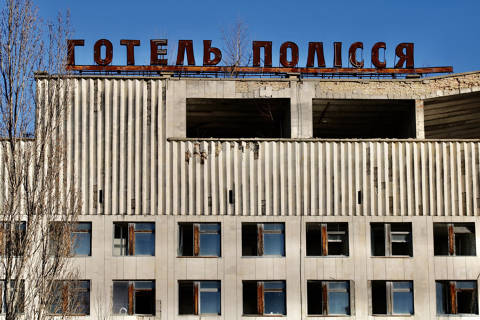How the Russian-Ukrainian crisis could affect the Real Estate market
Excuse me for taking the liberty today to share this thought with you; I suppose it is inevitable to take part of my daily thoughts into a conflict as undesirable as the current one. Undoubtedly, the impact of the war in Ukraine on the world economy, as well as the economic sanctions against Russia and the domino effect that this entails on global markets, will have repercussions in many sectors, including Real Estate.
Like many of you, I have been hooked on the news for days, listening daily to the parts on the radio, and reading the assessments that the economic press makes in real time. According to experts, the price of building materials, such as cement, can increase as the price of oil does. There is also a very high probability of raising interest rates to minimize inflation. Add to this additional stress on global supply chains, and the equation leads to a very different scenario than we had days ago.
Navigating an inflationary environment
After Russia launched its offensive by land, sea and air to invade Ukraine, and Europe and the US counterattacked by announcing the most severe sanctions possible, economic experts warned, just a week ago, that the outcome of the conflict could cause a potential crisis in the real estate sector. But will we really be at the gates of that undesirable future?
Undoubtedly, crude oil prices and inflation will be closely watched by all professionals who move in this sector. Keep in mind that the rapid rise in crude oil prices will soon amplify this inflation in all sectors of the world economy. The higher transport costs will not only affect the fuel of our daily vehicles, but will affect all types of transport by land, sea and air.
But I return to my analysis of the sector that the economy in general is already treated by the press minute by minute in all the news. If we focus on what affects Real Estate, we see how the impact would be perceived in the form of increased costs in construction materials. And this only within the current scenario. In the event of a large-scale conflict, transport costs would eventually rise exponentially, causing a much more negative reaction in the supply chain. That would inevitably translate into a much larger increase in prices, hurting the cost of construction.
Observing the current situation
Oil prices have already surpassed $100 per barrel and stock markets around the world are slowing down, raising concerns about the viability of future oil supply.
It is quite possible that the first sector affected is the luxury real estate market. Let's think that these types of acquisitions are easier to delay and get a greater share of the financing from volatile financial markets.
What might be interesting is that the effect could be felt on both the supply and demand sides of the residential real estate market. High oil prices will boost inflation. Inflation curbs consumer demand and could eventually lead to a recession. The reality of the war has already roiled stock markets, and prospective homebuyers don't know how much their investments are worth overnight.
Interest rates, also in doubt
Less cash for down payments and higher interest rates will reduce the demand for housing. Higher costs for construction will delay new construction, further reducing the supply side within this equation.
The conclusion in this regard could be that both supply and demand will contract in the coming weeks.
But sorry to go back to the beginning of this article and talk again about raw materials. Cement producers, who were already under pressure from rising material and energy costs, are preparing to be impacted by the effects of the conflict. Manufacturers and suppliers claim that, over time, this will inevitably affect the real estate sector.
Although the industry has been resisting so far, the increase in prices of between 20-30%, the current crisis has forced many construction companies to marginally raise the prices of their projects, figures that could worsen substantially in the coming quarters.
Economists agree. They point out that, if the crisis in Ukraine worsens, negative consequences may manifest themselves for the global economy and the real estate sector, which currently sees a growth trend.
I wish my reflections could be oriented towards more positive scenarios, but my analysis aims to be as realistic and impartial as possible. Economists agree. They point out that, if the crisis in Ukraine worsens, negative consequences may manifest themselves for the global economy and the real estate sector, which currently offered a growth trend. Even so, from Real Estate, professionals will always continue to work from optimism, resilience to market changes, and perseverance to keep our sector active, while we wait for this unwanted conflict to end as soon as possible.
David Granell Moreno
CEO











